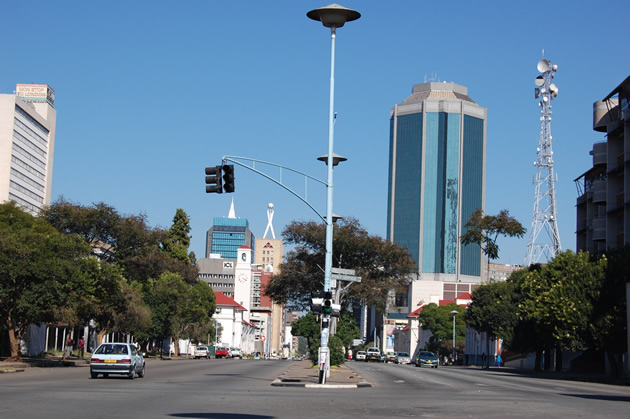
The Sunday Mail

 Kudakwashe Mutandi
Kudakwashe Mutandi
A number of foreign investors are increasing their interest in indigenous banks as the financial sector reels under the prevailing liquidity squeeze and failure to meet minimum capital requirements as set by the Reserve Bank of Zimbabwe (RBZ).
Diversified financial concern Tetrad Holdings Limited (Tetrad) has sealed a US$50 million deal with an unnamed Russian investor.
In 2012, the RBZ raised minimum capital requirements for commercial and merchant banks from US$12,5 million and US$10 million respectively to US$100 million in a bid to minimise systemic risks in the fragile financial services sector.
Before announcement of “Vision 2020” by the central bank last year, banks were expected to raise the capital in a staggered exercise that was expected to be completed by end of this year.
Concerns were, however, raised that locally owned banking institutions would face challenges in raising the revised capital.
Sources in the financial sector say despite earlier fears that the indigenisation and empowerment regulations scare foreign investors, fresh capital was coming from outside the country to rescue struggling indigenous banks.
According to information obtained by The Sunday Mail Business, the Russian investors injecting capital into Tetrad jetted into the country on Friday last week to conclude the multi-million-dollar investment deal that now only awaits approval from the central bank, the Ministry of Finance and Economic Development and the Bankers’ Association of Zimbabwe (BAZ).
In an interview, Tetrad chief executive officer Mr Emmanuel Chikaka said the bank has been searching for potential investors to capitalise operations within the financial institution.
He, however, could neither deny nor confirm the Tetrad deal with the Russian financier.
“The bank has been approached by a number of potential investors and is confident to conclude some of the deals soon. We are confident of the fact that we will achieve our recapitalisation plan,” he said.
The bank’s capitalisation stood at US$35 million as at June 30, 2013 below the central bank’s minimum capital threshold.
“We are in discussion with international financial institutions to raise lines of credit to further strengthen our position, and this will evidently see renewed confidence as the future prospects of the Bank become clearer,” added Mr Chikaka.
The investment deals have not been limited to Tetrad alone.
National Merchant Bank (NMB) has already secured US$16 million in lines of credit, while South Africa’s Nedbank has facilitated a US$75 million injection into its local unit, MBCA.
Allied Bank has been snapped up by Mauritian investors for US$30 million, while Genesis Investment Bank has already surrendered its banking licence after it became apparent that it could not raise the capital.
Economists believe the minimum capital requirement stipulated by the central bank will force a number of financial institutions into mergers or to seek external investors to avert collapse.
But, they reckon that the country’s indigenisation law was slowing down potential investment in the troubled sector.
“What we need to have is a sound financial system. Where the money is coming from should not be an issue. If we are tough on this indigenisation policy, we will miss out on potential investment opportunities by these foreign institutions.
“Observations reveal that there has been a paradigm shift with regards to the indigenisation policy and that has somewhat opened doors for more investors to come through,” said Zimbabwe National Chamber of Commerce economist (ZNCC) Mr Kipson Gundani.
The ZNCC economist, however, added that Zimbabwe was over-banked, a situation that needed to be addressed.
“We have more banks in Zimbabwe than depositors. The net value of a number of banks in this country can be equivalent to that of a single bank in South Africa, which is an anomaly,” he said.
While CBZ has already surpassed the ‘‘Vision 2020’’ deadline and foreign banks such as Barclays, Standard Chartered and Stanbic have strong financial backing, the spotlight is on small indigenous banks.
The International Monetary Fund indicated that Zimbabwe’s financial sector had grown significantly, but its vulnerabilities had increased.



